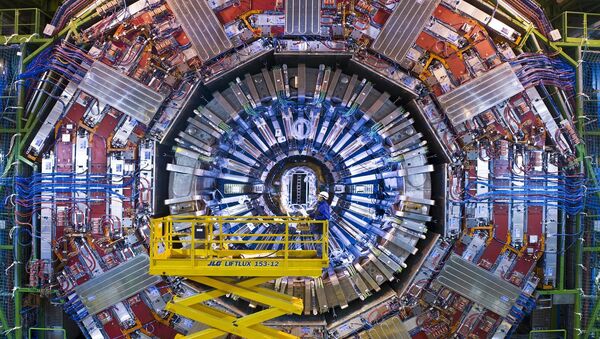MOSCOW, June 8 (RIA Novosti) - Scientists at the European Organization for Nuclear Research (CERN) are finishing repairs to the Large Hadron Collider, which has been out of operation since September, CERN said on its website.
Scientific experiments on the world's largest particle accelerator were suspended due to a helium leak into the tunnel housing the device and a subsequent electrical fault. The collider is scheduled to restart in September.
"In Sector 3-4 the full length of the beam lines have been closed and work is currently ongoing to finish the final electrical interconnections. Once that is completed, work will start to close up the W bellows - the large accordion-shaped sleeves between two magnets - and preparations can start to cool the sector down," the statement said.
The collider, located 100 meters underground with a circumference of 27 km, enables scientists to shoot sub-atomic particles round an accelerator ring at almost the speed of light, channeled by powerful fields produced by superconducting magnets.
In order to fire beams of protons round the vast underground circular device the entire ring must be cooled by liquid helium to minus 271 degrees C, just two degrees above absolute zero.
By colliding particles in front of immensely powerful detectors, scientists hope to detect the Higgs boson, nicknamed the "God particle," which was hypothesized in the 1960s to explain how particles acquire mass. Discovering the particle could explain how matter appeared in the split-second after the Big Bang.
The international LHC project has involved more than 2,000 physicists from hundreds of universities and laboratories in 34 countries since 1984. Over 700 Russian physicists from 12 research institutes have taken part.




